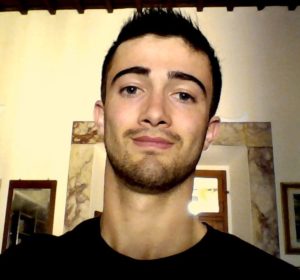 Venezuela is a powder keg. A major objective of the Chávez government after the Bolivarian revolution was to improve healthcare for the Venezuelan people, and they built thousands of new clinics, hospitals, and diagnostic centres across the country. But now there is a grave risk that all this progress will vanish and those living in poverty will suffer more than anyone else.
Venezuela is a powder keg. A major objective of the Chávez government after the Bolivarian revolution was to improve healthcare for the Venezuelan people, and they built thousands of new clinics, hospitals, and diagnostic centres across the country. But now there is a grave risk that all this progress will vanish and those living in poverty will suffer more than anyone else.
The Venezuelan healthcare sector is facing an unprecedented meltdown due to shortages of basic equipment. The origin of the problem is the collapse of oil prices. Additionally, the government’s huge borrowing has helped to bring the crisis to a head because Venezuela now has far less money to repay its foreign debt, forcing a slash of imports to avoid default.
Since the price of oil plummeted, all types of everyday commodities have been rationed. In the country’s public hospitals—where treatment should be free—medicine, equipment, and even food are increasingly not available. Antibiotics, electricity, and even soap and gloves are scarce, and a shortage of radioactive materials is threatening medical services, such as cancer treatments, and bringing diagnoses to a halt.
Furthermore, patients frequently have to buy what is needed for their treatment privately, thus ensuring a thriving black market and a rise of “out of pocket payments” (OPPs). Every day doctors have to fight to try to keep patients alive and sometimes it’s a losing battle, as indicated by the fact that the death rate among babies under a month old in public hospitals run by the health ministry rose to just over 2% in 2015, compared to 0.02% in 2012. At the same time, the death rate among new mothers in the same hospitals increased by about five times.
In May Venezuela’s National Assembly approved a bill to declare a humanitarian health crisis, which would force the ruling government of President Nicolas Maduro to accept foreign medical aid from other countries, specifically those in Latin America and Europe. In addition, Venezuela would also be allowed to request assistance from the World Health Organization.
Unfortunately, the health crisis continues. The president of the Pharmaceutical Federation of Venezuela, Freddy Ceballos, revealed that there was more than an 85% shortage of drugs in the country at the end of May.
The government in June signed an agreement to protect private healthcare users and insurance companies, thus assuaging public opinion. The accord establishes the need to conduct frequent inspections in order to check for possible abuses and to ensure the system is functioning correctly.
Yet all these measures are just cosmetic. In fact, as the medical crisis worsens, the Venezuelan government continues to deny attempts to introduce humanitarian aid into the country. Specifically, the Venezuelan government has denied several attempts by NGOs and opposition groups to bring humanitarian aid into the country, opting instead to import medicines from political allies such as the Chinese government.
Public marches have been organised across the country, with doctors asking for medical equipment and saying the problem is still urgent. Last week the government reported that it had distributed 18.7 million drugs and signed a cooperation agreement with Cuba to import an unspecified number of medicines.
However, the President of the Venezuelan Medical Federation disputed that this will benefit many Venezuelans, indicating that some medicines are actually produced in India and their quality “is not proven.” Although the government installed a hotline to improve drug distribution in February, Maduro recognises that this service is infiltrated by a “mafia” that is reselling imported drugs at inflated prices.
Yet that is not all. More than 100 000 Venezuelans crossed into Colombia over the weekend to track down food and medicines that are in short supply at home. It was the second weekend in a row that Venezuela’s socialist government opened the long closed border with Colombia.
The situation is dramatic and every day it is getting worse. Possibly, Maduro is trying to mask the country’s stark state of affairs, but how long can he continue to do this? How many people would have to die before the Venezuelan government will take essential countermeasures?
Pietro Dionisio graduated in international relations at Florence University. Since his masters degree he has had a keen interest in global health issues.
Competing interests: I have read and understood BMJ policy on declaration of interests and declare the following interests: None.
